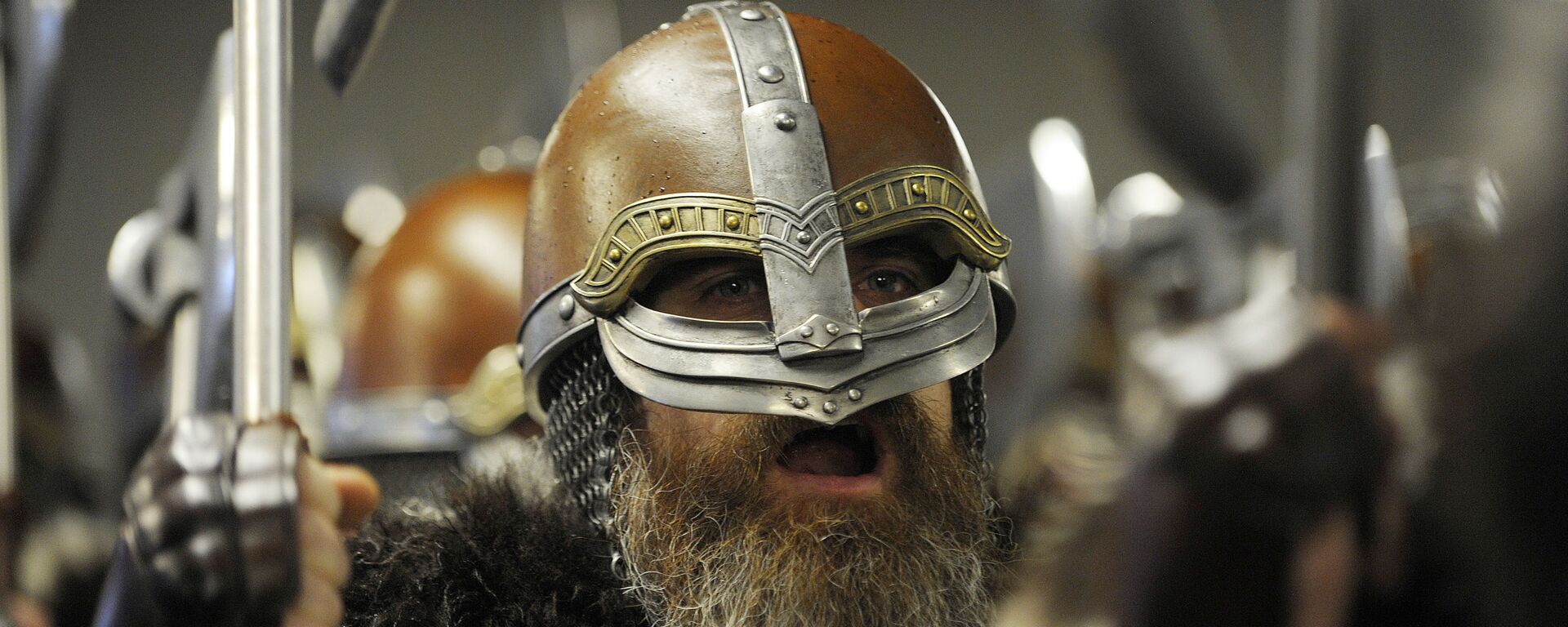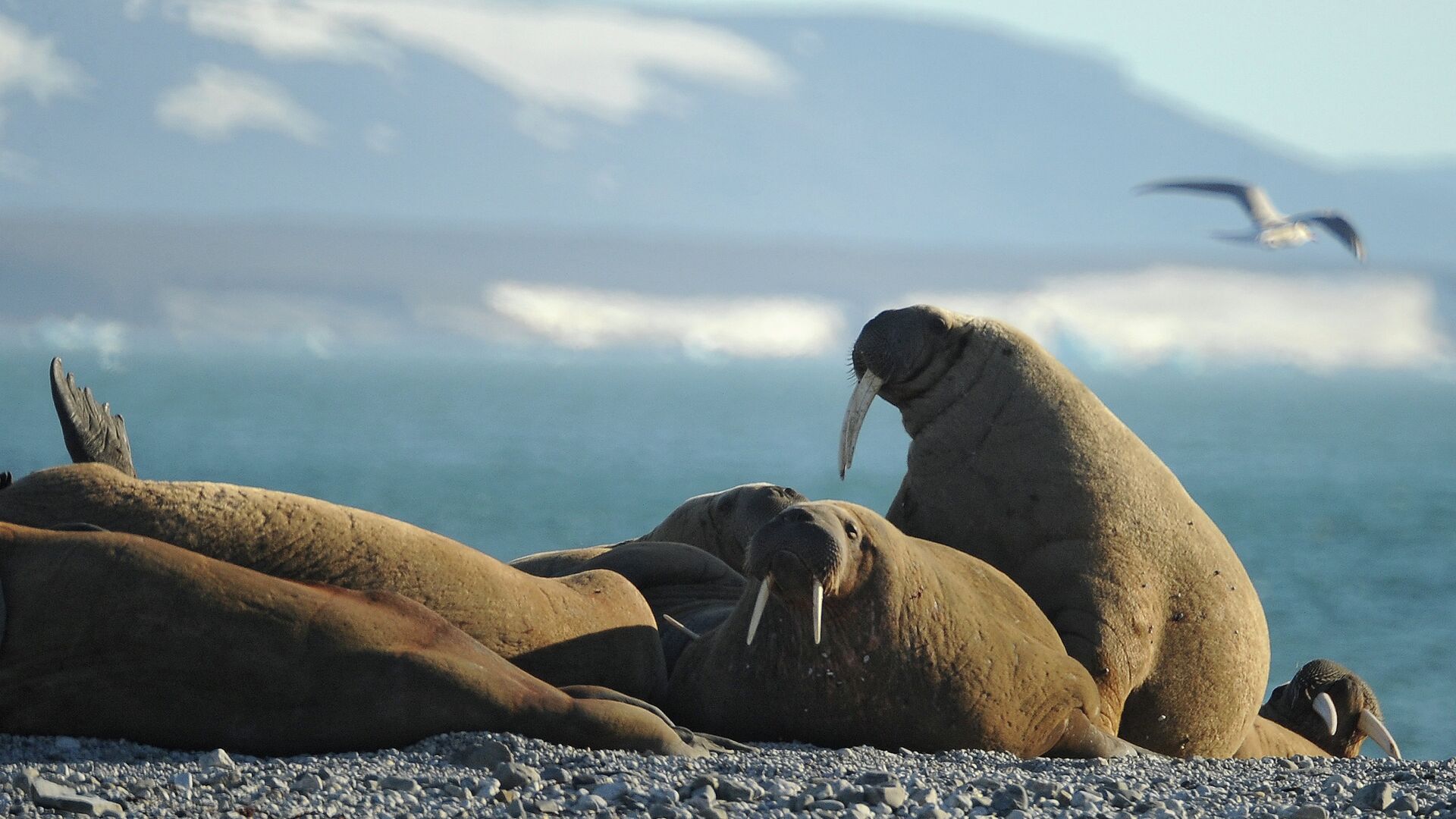https://sputnikglobe.com/20220726/freya-the-frolicsome-walrus-causes-a-stir-in-norwegian-capital-1097807951.html
Freya the Frolicsome Walrus Causes a Stir in Norwegian Capital
Freya the Frolicsome Walrus Causes a Stir in Norwegian Capital
Sputnik International
The Norwegian Directorate of Fisheries was against euthanizing the adorable intruder and decided to leave it in peace, yet warned onlookers to maintain a safe... 26.07.2022, Sputnik International
2022-07-26T09:43+0000
2022-07-26T09:43+0000
2022-07-26T09:43+0000
environment
scandinavia
newsfeed
norway
walruses
arctic
https://cdn1.img.sputnikglobe.com/img/101675/88/1016758813_0:269:3000:1957_1920x0_80_0_0_565290e641721ddd9eee7cdcda1acb04.jpg
While walruses are typically associated with higher latitudes and the Arctic, over the past week, a young and playful 600-kilogram female has settled down in Oslo fjord, basking in admiration and making quite a ripple in its waters and local media alike.The walrus, named Freya after the Norse goddess of love and beauty, had previously been sighted in the UK, the Netherlands, Denmark and Sweden.Freya rose to fame and notoriety in Norway through her habit of climbing onto pleasure boats in coastal villages surrounding the Norwegian capital before moving on to Oslo fjord, where she has been spotted regularly since mid-July, becoming a local celebrity and attracting cheerful crowds.Local newspaper Verdens Gang even set up a livestream of the walrus’s exploits. Since then, Freya has been filmed chasing ducks, wrangling with swans and even damaging boats, which is not that hard, given her bulk.For a while, the authorities considered removing Freya as a danger to the public or even putting down the Arctic visitor, but ultimately decided to leave her in peace, warning onlookers to keep their distance. The public was also strongly advised against approaching the giant while swimming or kayaking. According to the Norwegian Directorate of Fisheries, a walrus is not normally a danger to humans as long as you keep a safe distance. However, if disturbed by humans after not getting the necessary rest, it may feel threatened and attack, the warning said.The directorate described Freya as being in good condition, feeding and resting.Barely a week ago, a fellow walrus in Finland met a bitter fate after making headlines while beaching in seaside resorts on the southern coast. A decision was made to sedate the walrus in order to transport it to Helsinki's Korkeasaari Wildlife Hospital for urgent care, but the sea mammal died while in transit. A subsequent autopsy concluded that animal most likely died of starvation. The malnourishment was pinned on stress.The death of the walrus sparked an online controversy, with an outpour of criticism against those in charge of the botched rescue operation.The walrus is a protected species that feeds mainly on invertebrates such as mollusks, shrimps, crabs and small fish. An adult male weighs up to a ton while a female weighs about 700 kg.
https://sputnikglobe.com/20191007/vikings-blamed-for-wiping-out-icelandic-walrus-1076977489.html
scandinavia
norway
arctic
Sputnik International
feedback@sputniknews.com
+74956456601
MIA „Rossiya Segodnya“
2022
News
en_EN
Sputnik International
feedback@sputniknews.com
+74956456601
MIA „Rossiya Segodnya“
Sputnik International
feedback@sputniknews.com
+74956456601
MIA „Rossiya Segodnya“
environment, scandinavia, newsfeed, norway, walruses, arctic
environment, scandinavia, newsfeed, norway, walruses, arctic
Freya the Frolicsome Walrus Causes a Stir in Norwegian Capital
The Norwegian Directorate of Fisheries was against euthanizing the adorable intruder and decided to leave it in peace, yet warned onlookers to maintain a safe distance and not to disturb the animal. Earlier, a fellow walrus that appeared in southern Finland had died of malnourishment due to stress.
While walruses are typically associated with higher latitudes and the Arctic, over the past week, a young and playful 600-kilogram female has settled down in Oslo fjord, basking in admiration and making quite a ripple in its waters and local media alike.
The walrus, named Freya after the Norse goddess of love and beauty, had previously been sighted in the UK, the Netherlands, Denmark and Sweden.
Freya rose to fame and notoriety in Norway through her habit of climbing onto pleasure boats in coastal villages surrounding the Norwegian capital before moving on to Oslo fjord, where she has been spotted regularly since mid-July, becoming a local celebrity and attracting cheerful crowds.
Local newspaper Verdens Gang even set up a livestream of the walrus’s exploits. Since then, Freya has been filmed chasing ducks, wrangling with swans and even damaging boats, which is not that hard, given her bulk.
For a while, the authorities considered removing Freya as a danger to the public or even putting down the Arctic visitor, but ultimately decided to leave her in peace, warning onlookers to keep their distance. The public was also
strongly advised against approaching the giant while swimming or kayaking. According to the Norwegian Directorate of Fisheries, a walrus is not normally a danger to humans as long as you keep a safe distance. However, if disturbed by humans after not getting the necessary rest, it may feel threatened and attack, the warning said.
The directorate described Freya as being in good condition, feeding and resting.

7 October 2019, 10:01 GMT
Barely a week ago, a fellow walrus in Finland met a bitter fate after making headlines while beaching in seaside resorts on the southern coast. A decision was made to sedate the walrus in order to transport it to Helsinki's Korkeasaari Wildlife Hospital for urgent care, but the sea mammal died while in transit. A subsequent autopsy concluded that animal most likely died of starvation. The malnourishment was pinned on stress.
The death of the walrus sparked an online controversy, with an outpour of criticism against those in charge of the botched rescue operation.
The walrus is a protected species that feeds mainly on invertebrates such as mollusks, shrimps, crabs and small fish. An adult male weighs up to a ton while a female weighs about 700 kg.


